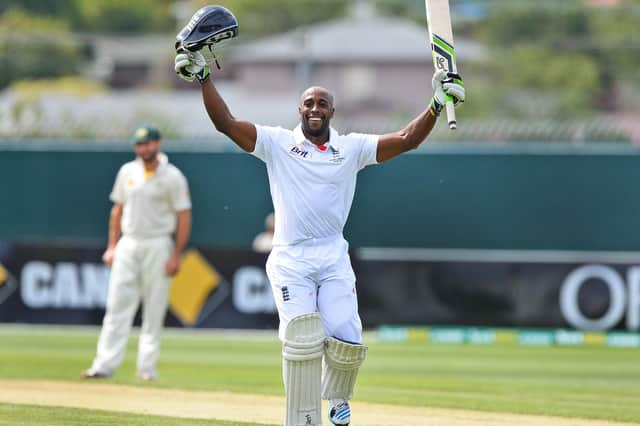Hampshire squad to receive new anti-racism education programme following player survey


It comes as the PCA published findings of a player survey it carried out in August and September last year regarding racism in the professional game.
Twenty-three of 173 members who completed the survey said they had experienced racism in the game.
Advertisement
Hide AdAdvertisement
Hide AdWithin the 173, there were 24 respondents who identified as black, Asian and minority ethnic and of those 12 said they had experienced racism in the game.
Ten of the 12 are current pros, which equates to approximately 38 per cent – so more than a third – of black, Asian and minority ethnic players in the professional game, the PCA said.
The survey was conducted just a few months after ex-Hampshire batsman Michael Carberry had claimed ‘cricket is rife with racism’ and that ‘the people running the game don't care about black people.’
Talking in light of the death of George Floyd in America, which sparked the Black Lives Matter campaign,, Carberry added: ‘Black people are not important to the structure of English cricket.
Advertisement
Hide AdAdvertisement
Hide Ad‘If you look around English cricket at the moment, where the important decisions are made, name one black man in those positions?’
The PCA’s education programme will begin in March, with workshops being delivered to all domestic male and female teams as well as the England men’s and women’s squads.
The PCA says it will ‘raise awareness of cultural differences and unconscious bias specifically in the context of racism in professional cricket, and address issues such as workplace banter and inappropriate non-verbal behaviour’.
Neil Snowball, the England and Wales Cricket Board’s managing director for county cricket, says that while the initial focus will be on players and support staff, the aim is for sessions to also be run for administrators and officials.
Advertisement
Hide AdAdvertisement
Hide AdNews of the education programme follows the ECB’s announcement in November of a range of measures aimed at increasing inclusion and diversity.
That includes a new independent Commission for Equality in Cricket being created to help the ECB assess evidence of discrimination and the actions needed to tackle them.
Also, a ‘Forum for Race in Cricket’ is being set up, and a new equality code of conduct is to be introduced ahead of the 2021 season, which will enable discriminatory behaviour to be sanctioned.
New ways for incidents to be reported are being put in place, including an anonymous phoneline.
Advertisement
Hide AdAdvertisement
Hide AdCricket has faced some troubling claims in recent months, including Azeem Rafiq’s allegation that he was racially discriminated against while with Yorkshire and the ECB being accused of institutional racism by two former umpires, John Holder and Ismail Dawood.
PCA chief executive Rob Lynch said: ‘Racism in the game is unacceptable and the game needs to take action.
‘Players have asked for education and clarity on the reporting of discriminatory behaviours and for the development of a code of conduct, which we will deliver on this year. We will continue to work with the ECB and other key stakeholders in this area to do more, and simply be better.
‘There is plenty of work to be done in the fight for equality, this is about affecting real change and we will continue to strive to ensure that professional cricket is a game for all.’
Advertisement
Hide AdAdvertisement
Hide AdOther findings from the survey were that of players who had experienced or witnessed racism, 45 per cent said it had come from another player, while 39 per cent said it was either from fans or on social media.
When asked what the intent was in the instances of racism, 62 per cent believed it was ‘disguised as banter’.
Seventy per cent of respondents felt increased education would have a positive impact on players’ attitudes towards diversity and inclusion within the professional game.